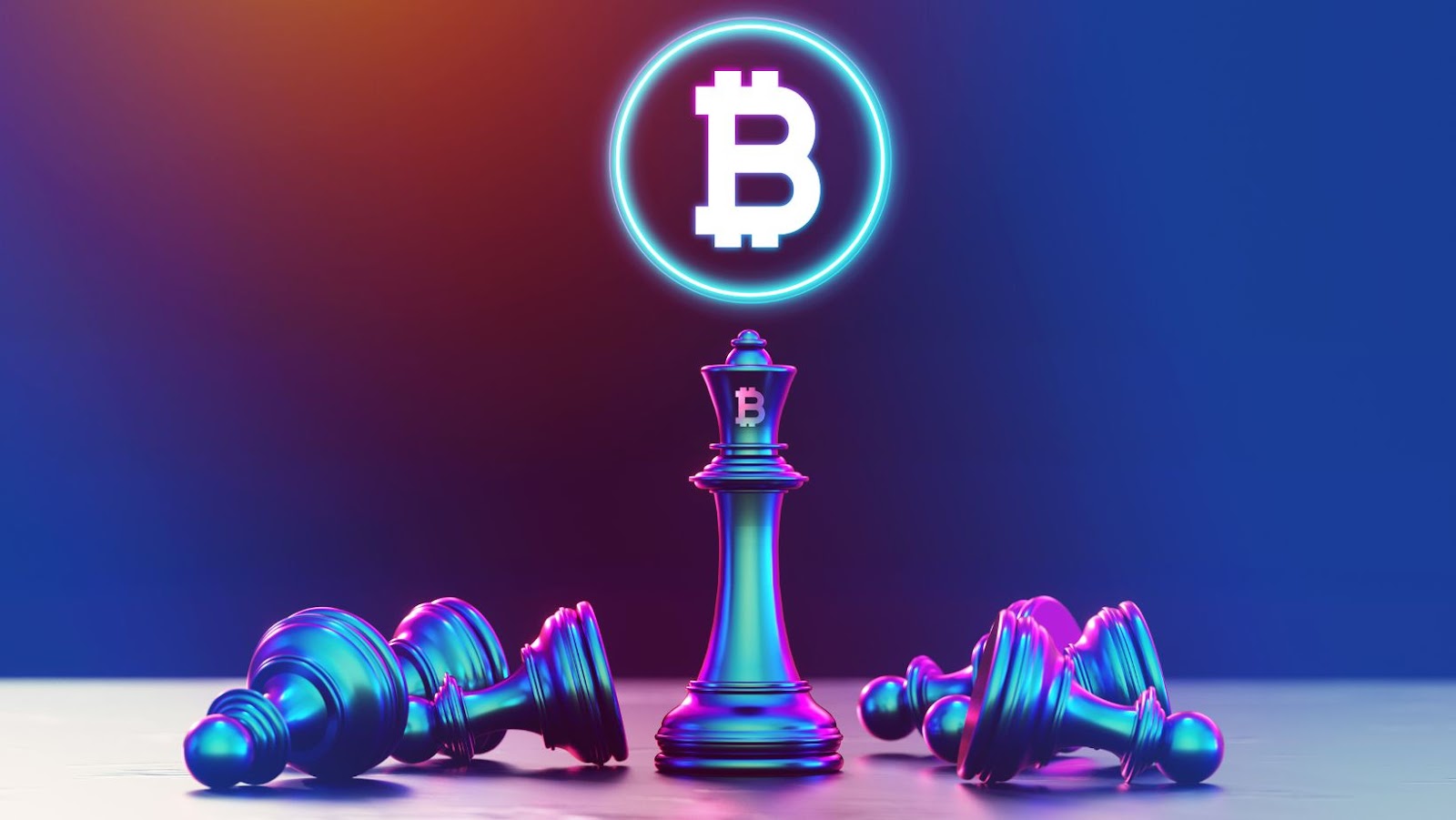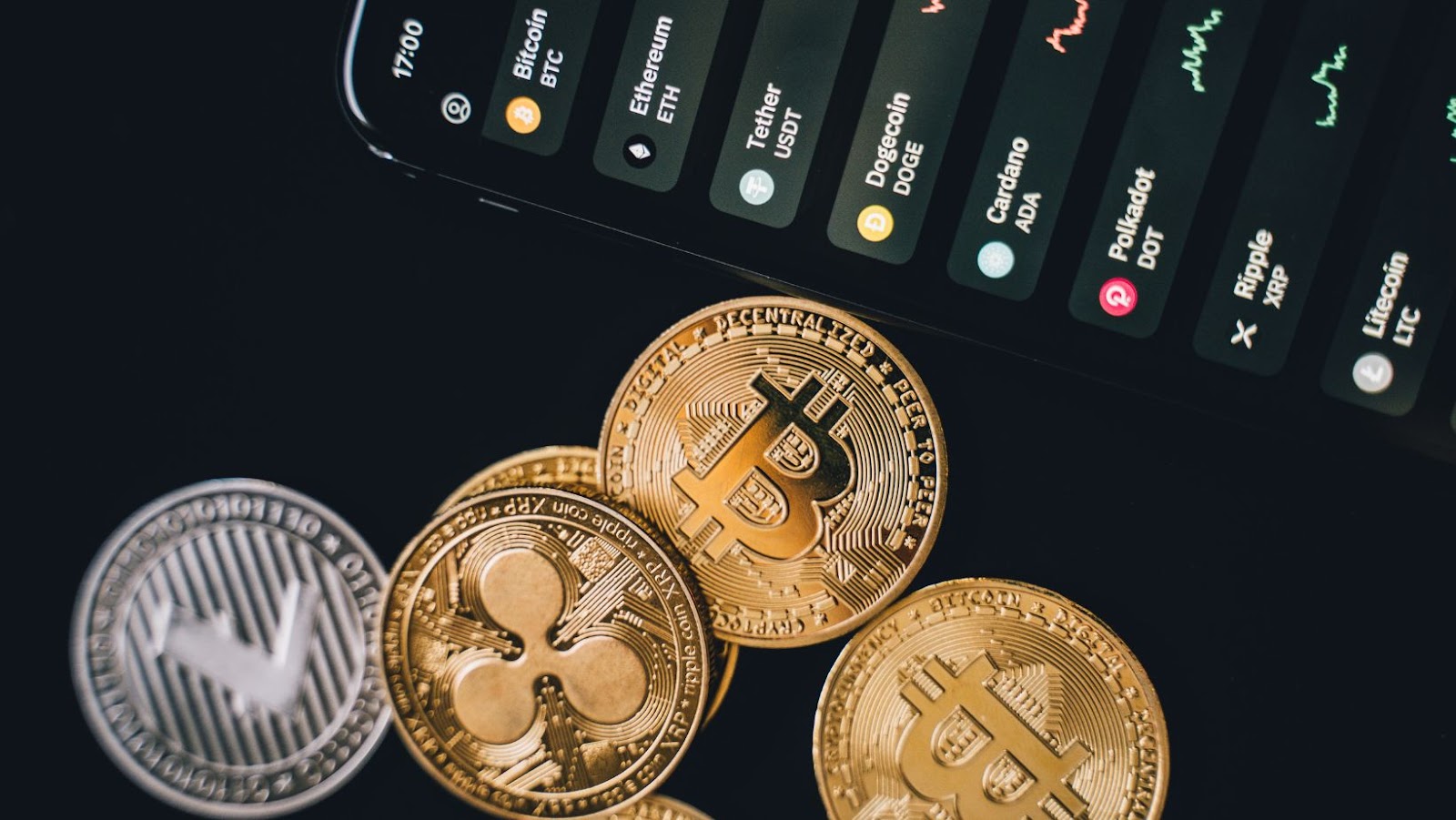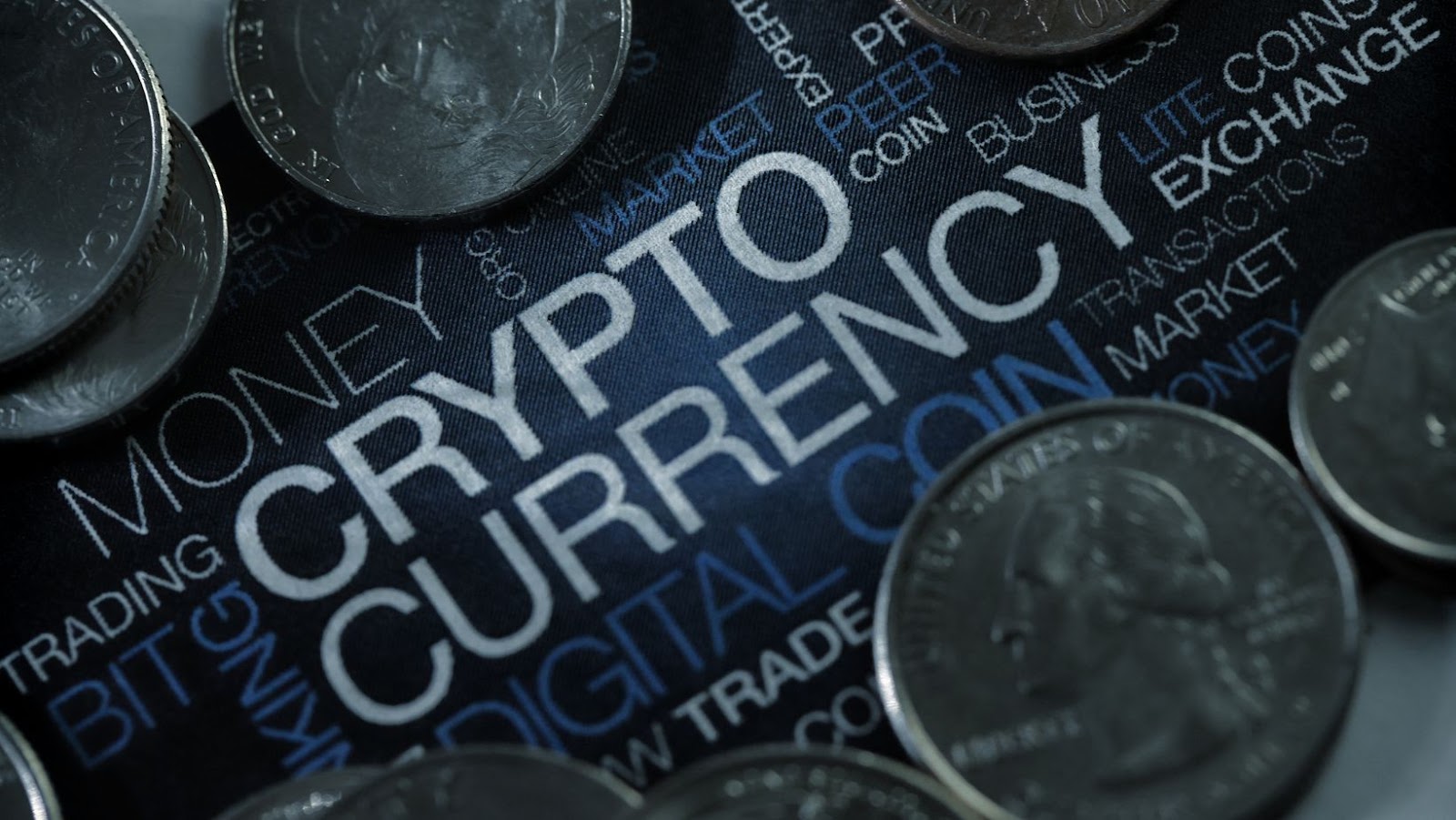Cryptocurrencies like Bitcoin and Ripple are rapidly gaining popularity as more and more people turn to digital currencies for their transactions.
Understanding the differences between Bitcoin and Ripple is important to make smart investments in cryptocurrency.
This article will discuss the basics of Bitcoin and Ripple and how they differ.
Definition of Bitcoin
Bitcoin is a digital currency first released on January 3, 2009 by an anonymous person or entity using the alias Satoshi Nakamoto. It is decentralized, meaning it’s not regulated by a central authority such as a government or bank. Instead, it works as peer-to-peer technology where transactions occur directly between users without an intermediary.
It runs on distributed computer networks and does not require any third party to facilitate user payment transactions. Bitcoins can be used to purchase goods and services online or send money to others within the Bitcoin community.
Transactions are secured using public-key cryptography and each transaction must be verified before it can be added to the ledger (a public record) detailing all past transaction histories. The entire process is designed to ensure multiple checks and balances while allowing transactions to remain secure and fast over a global network of computers.
Definition of Ripple
Ripple is a cryptocurrency platform that facilitates the secure transfer of funds and assets nearly instantaneously. It was created by Ripple Labs, a US-based technology company, in response to the slow and costly process of cross-border payments.
Unlike Bitcoin and most other cryptocurrencies, Ripple does not depend on blockchain technology but instead uses a distributed ledger protocol labeled the Ripple Protocol Consensus Algorithm (RPCA). Transactions within the network are verified by users – known as validators – who reach consensus on the order and integrity of all network activity.
Ripple differs from Bitcoin in several key ways. First, Ripple transactions can occur quickly — typically within seconds — while Bitcoin transactions usually take minutes or even hours to fully process. Second, there is no native cryptocurrency associated with Ripple; instead, it uses its digital currency, XRP, to facilitate transfers and provides immediate liquidity for banks without having to move assets or establish credit lines between countries. Finally, due to its open source nature, data processing fees with Ripple are much lower than with traditional payment networks like Visa or Mastercard. For example, VISA can have up to 3% processing fees, while Ripple charges only 0.00001 XRP per transaction.

How Bitcoin Works
Bitcoin is a decentralized digital currency that works using blockchain technology. It was created in 2009 by a mysterious figure known as Satoshi Nakamoto, and has grown to become the largest digital currency in the world. Bitcoin is not controlled by any government or background authority and relies on a peer-to-peer network of its users.
This article will discuss how Bitcoin works and how it’s used.
Mining
Mining is the process by which new Bitcoin and Ripple transactions are added to the existing digital ledger (blockchain). To add a new block of transactions to the blockchain, miners must solve complex puzzles using their computer processing power. This is known as “proof-of-work,” It is rewarded with a newly minted Bitcoin or Ripple transaction.
Mining requires immense computer processing power, as complex puzzles become increasingly difficult as miners add more blocks to the blockchain. This process is resource intensive, and due to its energy needs, requires a significant level of technical know-how and computer hardware for successful mining.
As mining becomes more difficult, miners often form pools to share the energy costs and split any profits evenly among group members. To be successful at pool mining, groups need access to powerful computers that are large enough to control the networked pools of miners.
Although Bitcoin has recently seen a dip in popularity among investors, it remains a powerful technology with many potential applications in e-commerce and financial markets. Mining remains an important part of maintaining the blockchain ledger system on which Bitcoin relies, but different rules apply when discussing Ripple’s XRP virtual currency system.
Blockchain Technology
Bitcoin, and cryptocurrencies like it, are powered by a distributed ledger system called the blockchain. Blockchain technology is revolutionary in taking information traditionally maintained by a central authority and distributing it among a network of computers, creating a decentralized network of connected computers.
This technology makes data immutable and secure from malicious tampering or interference from third parties. This helps to ensure that when bitcoin transactions occur, they cannot be reversed or tampered with. The blockchain also allows for anonymous bitcoin transfer between individuals or organizations without intermediaries such as banks or payment processors.
The blockchain consists of an open, distributed ledger that securely records all Bitcoin transactions using cryptography. All nodes on the network verify each transaction against the ledger and must come to a consensus regarding its authenticity before it can be added to the chain. This system ensures that all users are aware of any changes made to the ledger since every node always holds an identical copy of it. In addition, once a transaction is added to the blockchain, it cannot be modified or removed without reaching a consensus across all participating nodes in the network.
Bitcoin Transactions
A Bitcoin transaction is simply a transfer of value between two digital wallets using Bitcoin as the exchanged currency. When users want to make a transaction, they broadcast their intention to the rest of the network. Since all transactions are visible, senders must include sufficient verification data in their requests.
Transactions then become part of a block — a bundle of validated transactions — and are broadcast to the network for further confirmation. This confirmation process occurs through miners — computers running algorithms that solve complex mathematical problems: They confirm each block, adding it to an ever-growing chain called the blockchain, which records all reliable transactions on the network. Cryptographic keys are essential in maintaining data integrity and protecting against fraud.
For miners to receive rewards for their work, they collect fees from users for including their transactions in the blockchain; these fees act as an incentive system for miners and allow them to stay profitable despite fluctuations in exchange rates or cost reductions due to technological advances. In addition, each time a new block is created and added to the blockchain, it includes information about who sent what funds (or amounts) and other information related to Bitcoin mining operations such as nonce values or proof-of-work computations.

How Ripple Works
Ripple is a cryptocurrency based on blockchain technology, just like Bitcoin. Ripple is designed to make it easier to transfer funds quickly and securely from one person to another.
Transactions on the Ripple blockchain are almost instantaneous and fees are much lower than traditional banking.
So, how does Ripple work? But, first, let’s take a closer look.
Ripple Consensus Protocol
The Ripple Consensus Protocol (RCP) is an algorithm that enables the secure, public consensus necessary for the Ripple Network to function on a decentralized basis. It requires validating servers to agree on the current state of the ledger, and it controls how users submit transactions.
RCP works by distributing transaction records among validating servers worldwide, meaning each server has a copy of all transactions made on the network. It then assigns ties between these ledgers using a “consensus process” which relies on approval from at least 80 percent of participating validators to continue ripple processing functions.
Using this consensus process, agreed-upon ledger states are considered valid and future possibilities are growing more secure with each new set of RCP updates. Of course, any invalid states could potentially prevent further progress and cause delays in settlement times – but this level of security means that your transactions remain safe and private even at peak activity times.
To ensure highest performance for all its users, Ripple uses its own distributed ledger protocol rather than blockchain technology; blockchain may offer better security but also has higher operating costs and slower speeds associated with its use. Transactions completed in RCP can benefit businesses that handle high-volume payments because it usually requires minimal setup fee or delay time compared to blockchain technology. In addition, its faster settlement speed allows companies to streamline their payment processes, reducing operational costs and better serving their customers.
Ripple Network
Ripple is the name of an open-source payment network, and a cryptocurrency that uses its distributed ledger technology to facilitate financial transactions. The network is comprised of a series of nodes on the Ripple Network. Each node acts as a validator to verify and validate transactions that occur on the network. Once a transaction has been validated, it is stored on the distributed ledger across all nodes on the network.
The Ripple Network operates without any single point of control or failure, ensuring that resiliency and security remain intact in case of malicious attempts to disrupt the system’s functioning. This blockchain-based payment protocol allows for fast and secure money transfer between parties without using the traditional banking system or third-party intermediaries (banks or financial services companies). It also ensures transparent transactions with near-instant settlement at minimal cost–payments are settled within seconds, regardless of size or location.
The Ripple Network also uses its native cryptocurrency XRP which serves as an intermediary currency to facilitate a smoother transition between different forms of currencies like USD, GBP, JPY, Euro etc., whereby XRP can be used directly instead of converting one currency into another first. This reduces time associated with international payments while eliminating exposure to currency exchange risk.
Ripple Transactions
Ripple was designed to be a global open-source financial protocol that banks, payment providers, businesses and people can use. Whereas Bitcoin is a peer-to-peer payment system, Ripple is a decentralized one. When you send or receive money with Ripple, it’s done through an account balance instead of the blockchain.
Essentially, Ripple utilizes a consensus process whereby transactions are settled within 5 seconds. The transactions are then validated by consensus among members of the network. This makes Ripple unique since it offers faster payments than other digital currencies while still being secure and reliable enough to be used by financial institutions. Furthermore, the entire process can take a few seconds at most, which is much more efficient than the 10 minutes it typically takes with Bitcoin when waiting for the blockchain to finish its verification process.
Ripple’s integration with traditional finance also allows for more flexibility when it comes to payments because it easily accommodates merchant payments and transfers between individuals or businesses in different countries and currencies. Transfers may occur in any fiat currency such as USD, EUR or GBP; digital assets such as Bitcoin and Ethereum; or XRP — one of Ripple’s native tokens. This allows users to pay each other almost instantly in whatever currency they choose without worrying about exchange fees or delays associated with conversions between different fiat currencies or digital assets like Bitcoin and Ethereum – something that’s not easily achievable on any other cryptocurrency platform yet.

Bitcoin vs. Ripple: What’s the Difference?
Bitcoin and Ripple are two of the most popular cryptocurrencies on the market now, and have many similarities, however, there are also some key differences between them.
Bitcoin and Ripple are digital assets created by computer algorithms and used for various purposes such as payments and investments.
This article will examine the differences between the two and help you understand what sets them apart.
Mining and Validation
One of the key differences between Bitcoin and Ripple is how transactions are recorded and validated. Bitcoin uses a proof-of-work consensus mechanism, requiring miners to solve complex mathematical puzzles to add transaction blocks to the blockchain ledger. These puzzles are designed to be computationally difficult so that they cannot be solved by any one miner or group of miners. In return, miners are rewarded with a certain amount of Bitcoins, which incentivizes them to continue contributing their processing power.
Ripple operates differently than Bitcoin in that it does not require miners to validate transactions and add them to the ledger; instead, nodes have the authority to independently add transactions. This more decentralized system is thought by some observers to create greater security against potential 51% attacks compared with Bitcoin’s model. However, there is still debate whether this advantage exists in real life circumstances.
Another critical difference between Ripple and Bitcoin is that Ethereum operates on its native currency, XRP (Ripple tokens/XRP). This currency has value outside the Ripple network and can be traded on exchanges like other cryptocurrencies such as Ethereum or Bitcoin.
Transaction Speed
Transaction speed is one of the biggest differences between Bitcoin and Ripple.
Bitcoin uses a proof-of-work system to validate transactions. This means that users must authenticate each transaction, which can take 10 minutes or longer depending on network traffic. Therefore, businesses that rely on instant payments, such as online retailers, might not find Bitcoin suitable for their needs.
Ripple, however, was designed for instantaneous payments. Transactions are validated using a consensus protocol and users don’t have to wait for a block to be mined before getting confirmation that their funds have been transferred. This makes it attractive for those businesses seeking faster settlements between banks or other financial institutions.
The speed advantage of Ripple also helps reduce costs associated with transactions compared to Bitcoin’s proof-of-work system where miners receive rewards in the form of newly minted coins (or fees). This means businesses can optimize costs by choosing Ripple over Bitcoin and reduce time spent waiting for confirmations on transfers.
Transaction Cost
One of the significant differences between Bitcoin and Ripple is their transaction cost. Bitcoin has a flat transaction fee, meaning that all transactions incur the same cost regardless of size. The fee for a typical Bitcoin transaction ranges from $1-$5, depending on network congestion. This cost can be prohibitively costly particularly when making micro-transactions, such as those involved in online gaming or tipping.
On the other hand, Ripple transactions have very low fees due largely to its use of Interledger Protocol (ILP). This protocol eliminates the need for mining and allows users to pay almost negligible fees directly to network participants. Furthermore, because ILP automatically finds optimal routes through participating networks, it also speeds up transactions substantially — in fact, it takes only 4 seconds for a Ripple transaction to be fully processed!
It’s important to note that Bitcoin and Ripple transactions are completely secure and encrypted; however, Ripple boasts the added benefit of an optional arbitration layer that could serve as proof-of-payment or multi-signature agreement. Of course, ultimately it’s up to users to decide which cryptocurrency suits their needs best; but understanding the difference between Bitcoin and Ripple will surely get you one step closer to choosing wisely!
Conclusion
To summarize the differences between Bitcoin and Ripple, the two cryptocurrencies operate on a very different scale. Bitcoin is a decentralized, peer-to-peer system designed to create an independent store of value with limited supply. Transactions are managed by the blockchain and require miners to validate them.
On the other hand, Ripple is a centralized payment platform that uses its distributed ledger technology (DLT) to settle payments quickly and securely. XRP is the native asset of Ripple that provides liquidity and cost effectiveness. While Ripple Labs heavily regulates XRP, it still offers an efficient way to facilitate international transactions.
In conclusion, Bitcoin and Ripple provide innovative solutions for digital payments; however, they serve different purposes based on their design and functionality. Bitcoin has mass appeal as an alternative currency while Ripple was built for businesses looking for faster payments at lower costs.

